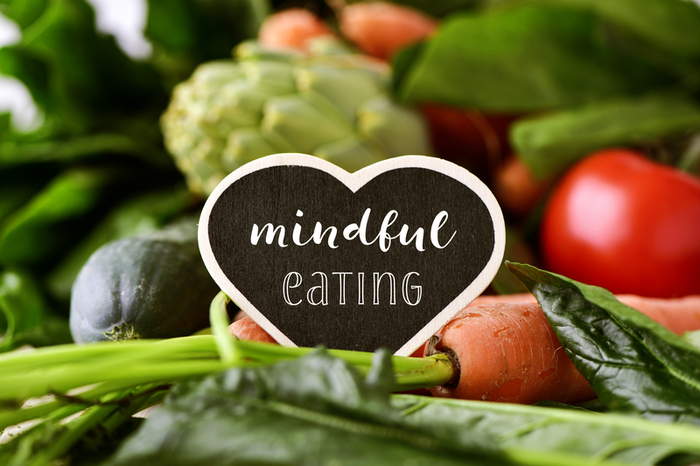- Calls to this hotline are currently being directed to Within Health or Eating Disorder Solutions
- Representatives are standing by 24/7 to help answer your questions
- All calls are confidential and HIPAA compliant
- There is no obligation or cost to call
- Eating Disorder Hope does not receive any commissions or fees dependent upon which provider you select
- Additional treatment providers are located on our directory or samhsa.gov
Dieting and Recovery from Anorexia Nervosa – Do They Mix?
When walking along the days, weeks, and months of a life in recovery from an eating disorder there are times when questions come up about diet.
For individuals with a history of anorexia nervosa, the question of whether or not dietary restrictions are ever appropriate is actually a very serious fact to consider.
Given the high levels of relapse and mortality, particularly in the earlier years of recovery, this is a fact that should not be taken lightly.
Maintaining a Path of Recovery
Consideration for the statistics of recovery should be something that is mentioned, not to absolve hope, but to reiterate the importance of maintaining a path of recovery and within this making healthy choices on a day-to-day basis.
Statistics from a study of the 10 years after entering into recovery from anorexia nervosa have shown a 13-fold increase in mortality in this population, a high rate of weight relapse (42% in the first year), and a high frequency of binge-eating behavior (occurring in 64%) in this period.
For individuals with a tendency to anorexia nervosa, the urgency and desire to control things such as weight and binging behavior are high and exist as a guttural instinct.
A Coping Mechanism
Much like an alcoholic or addict in recovery, the temptation of using a coping mechanism (in this case dieting) to control a life of otherwise unpredictable events, emotions, and challenges at times will be high.
One who has struggled with an alcohol or drug addiction must consider these substances as something that can no longer be a part of life. However, for someone with an eating disorder, greater variability of challenges exists around all food rather than the substance which can be entirely avoided.
And within this whether or not it is acceptable to pursue a weight-loss diet must be considered.
The Twisted Sense of “Diet”
Diet, by definition, is the food choices that we each make daily. So in essence, we all are on “a diet.” Unfortunately, much of society has twisted this definition of diet to the meaning of a diet for the purpose of weight loss.
Tabloids, magazines, and television all blast reinforcement of the importance of appearance and how to achieve a perfect body.
Very little media content supports achieving a natural appearance – whether this is a voluptuous (and historically sought after) female appearance, normal growth of and color of body hair, and letting our bodies just be that which they naturally would choose to be.
Not only women are affected by this, but male publications and entertainment news also focus on how to remove extra hair, look more toned, and fit high maintenance and for many unnatural ideals.
Diet and Recovery Don’t Mix Well
When one pursues the road of recovery from anorexia nervosa, the explicit action of following a diet with the intention or desire to lose weight is contrary to the holistic goal of recovery of both the body and mind.
A weight-loss diet may seem like a sensible thing in a pinch or for a short period of time, but habitual patterns are strong and will easily (for some instantly) be triggered.
Similar to a tennis serve or riding a bike, or the song that you can’t get out of your head, many different aspects of memory are triggered in individuals with a history of anorexia nervosa when the decision is made to the diet.
These memory pathways of emotion, pleasure, reward, and even aspects of motor function, strongly reinforce themselves given the opportunity to be put on replay. For these reasons, the choice to focus energy, time, and awareness on a weight-loss diet is not congruous with recovery from anorexia nervosa.
Choosing a Food Plan
Further out on the road to recovery, other choices of diet also will arise. When individuals consider health holistically dietary choices also come into play.
Whether or not to eat gluten and dairy, eating organic, avoiding food allergens or sensitivities, or following a vegan or Paleolithic diet are also becoming popularized choices in the pursuit of health.
Expanding the definition of diet to these larger concepts is important as well, as they will inevitably exist as challenges from time to time.
These choices may be based on other larger concepts of health, like other health conditions such as allergies, autoimmunity, and irritable bowel syndrome (the latter common population-wide but even more so in recovery from eating disorders) have evidence that dietary modification will improve symptoms and disease course.
Keeping Health Goals in Mind
As a naturopath who works with many people with these problems as well as chronic issues of fatigue and poor mood, dietary choices are one of the first things which are often addressed. Making dietary changes with these additional health goals in mind may support holistic recovery and may be appropriate on an individual basis.
Just as any aspect of medicine or therapy is concerned, we are never our own best doctors and should seek outside support when looking to make these changes or choices.
Holistic nutritionists and naturopathic doctors each have a significant amount of training in these areas and may be appropriately suited to provide guidance and assist with dietary choices for the purpose of improved health.
Freeing Yourself from Food Obsession
For most people in recovery from anorexia nervosa, one of the primary goals is a life free from an unnecessary focus on food. When looking to make dietary changes this goal should still be paramount, and following a therapeutic diet may be appropriate some of the time, but not override opportunities for community and fellowship surrounding other foods.
Maintaining a mental state of openness and gratitude for both recovery and the foods which are served will help the body digest and assimilate food and the nutrition that is within it.
Offering gratitude before meals, whether this is to the person who worked in preparation, or a general sense of thankfulness for the nourishment which the body will receive supports the body in digestion, as well as the mind and spirit in recovery. So do take time to be thankful for the gift of food and recovery and know this will support your health.
Reference:
- Eckert ED, et al. Ten-year follow-up of anorexia nervosa: clinical course and outcome. Psychol Med. 1995 Jan;25(1):143-56. http://tinyurl.com/povo2cg
Contributor: Carrie A. Decker, Naturopathic physician
The opinions and views of our guest contributors are shared to provide a broad perspective of eating disorders. These are not necessarily the views of Eating Disorder Hope, but an effort to offer discussion of various issues by different concerned individuals.
Last Updated & Reviewed By: Jacquelyn Ekern, MS, LPC on December 31st, 2014
Published on EatingDisorderHope.com
Articles on Anorexia
- Anorexia Death Rate – Highest Mortality Rate of Mental Disorder: Why?
- Malnourishment and the Brain – Anorexia and Neurobiology Research
- Refeeding Patients with Anorexia Nervosa: What Does Research Show?
- Anorexia and Amenorrhea: What are the Consequences?
- Meal Time Tips for Families Struggling With Anorexia.
- How Does Excessive Exercise Influence the Anorexic Patient: What research shows
- The Minnesota Starvation Study – Important Insights to Help Us Understand a Loved One Suffering From Anorexia?
- ANGI – Global Anorexia Genetic Study Led by UNC
- The Genetic Study of Anorexia
- College Life: How to Handle Anorexia Nervosa



